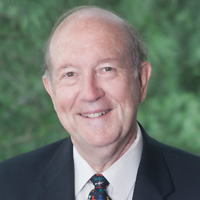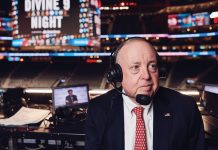
When I first met Steve Koonin at Atlanta Hawks headquarters, he was all smiles and anticipation. It was early September, and Koonin was anxiously approaching his first opening night as Hawks CEO. He had assumed the role back in April, just in time to witness the team’s unforeseen playoff uprising against the top-seeded Pacers. Koonin is a brand man; he oversaw worldwide marketing for Coca-Cola (where he crew-chiefed a partnership with NASCAR) and was president of Turner Entertainment Networks (he slapped the “Very Funny” tagline on TBS) before acquiring a minority stake in the Hawks and being charged with overseeing operations. He had pushed for early release of the new throwback “Pac-Man” logo while basketball fans were glued to that Indiana series. And as we sat in a corner office on the nineteenth floor of Centennial Tower, the 57-year-old exec was giddy as he discussed plans for carrying that momentum forward: a revamped game experience this season and new uniforms next year as ways to draw millennials.

Photograph courtesy of Turner Broadcasting System
Three days later, Koonin had much bigger worries than the players’ wardrobes.
Working to stay ahead of news leaks and TMZ—which had taken down former Clippers owner Donald Sterling for making racist statements—the team published an internal 2012 email from majority owner Bruce Levenson, who theorized that attendance was low because “the black crowd scared away the whites.” Forty-eight hours later, the team issued the text of statements general manager Danny Ferry had made in June about scouting reports regarding a black player as having “some African in him.” The once media-hungry Hawks were now in headlines everywhere from BuzzFeed to the New York Times. Levenson announced plans to sell his stake. Ferry took a leave of absence. Koonin was left amid the rubble.
Koonin’s first response was radio silence, setting his email to auto reply. He postponed a meeting with local civil rights leaders at the last minute, leading to yet more public scrutiny. Weeks passed. Koonin later told me that nothing in his past had prepared him for this sort of backlash (he wasn’t involved with the Hawks when the email was written). But eventually he shifted to offense.
“We didn’t move at the speed people wanted,” Koonin told me over the phone, almost three weeks after our initial interview. “But we moved at the speed we needed to. I feel vindicated—we think we got it right.”
First he emphasized the importance of the new logo, which will be printed on shirts and hats and represented in NBA video games directed at, in his carefully chosen words, “African Americans and millennials.” Next he talked about Building Bridges Through Basketball, an initiative in which the team will install lighted basketball courts throughout the city, similar to those renovated by the Hawks Foundation in the Old Fourth Ward. “We will be an integral part of the community,” said Koonin. “And our currency is basketball.”
While Koonin is renewing his efforts to attract newer, younger, and, yes, African American fans, it remains to be seen whether existing fans will accept the mea culpa offer of 1,500 $15 seats to each game at Philips (which is celebrating its fifteenth anniversary). Koonin also created the position of chief inclusion and diversity officer, and the team is erecting a statue at the arena of fan fave Dominique Wilkins, whom Koonin recently appointed as “special adviser.”
But without a Dominique-like superstar to rally fans, the only way to attract new followers and satisfy the old ones may just be to get past the first round of the playoffs.
Relationship Advice
Atlanta PR experts offer the Hawks their suggestions

Tony Wilbert
The Wilbert Group
Former AJC business reporter, reps Atlantic Station and Ben Carter Enterprises
‣ Own up: Acknowledge that you’ve made the mistake, and tell the truth (like why did this surface after two years?).
‣ Seek closure: This will be easier if Danny Ferry resigns or they fire him. Otherwise, it’s hard to completely move on.
‣ Open up: Make the public feel included—especially when you’re looking for the new owner.

Bob Hope
Hope-Beckham Inc.
Former Braves PR director, reps the Atlanta Falcons
‣ Befriend the media: The Hawks kind of went into bunker mode. Go back and talk to all of the reporters—especially those you might have offended with rejection.
‣ Come together: A lot of finger-pointing goes on in these situations. Get everyone on the same page.
‣ Smile: Be a little lighthearted. You’re in the basketball business.

Marsha Middleton
M-Squared Public Relations
Repped Habitat for Humanity and Home Depot. Current clients range from Ivy Mountain Distillery to the luxe Brice Hotel.
‣ Training camp: Incorporate diversity training at all levels of the company.
‣ Call for help: Retain an outside ad agency to hone your message and include everyone—not only the African American community.
‣ Step back: Take a look at every aspect of operation—down to the halftime show—and make sure it conveys your new message.
This article originally appeared in our November 2014 issue.














